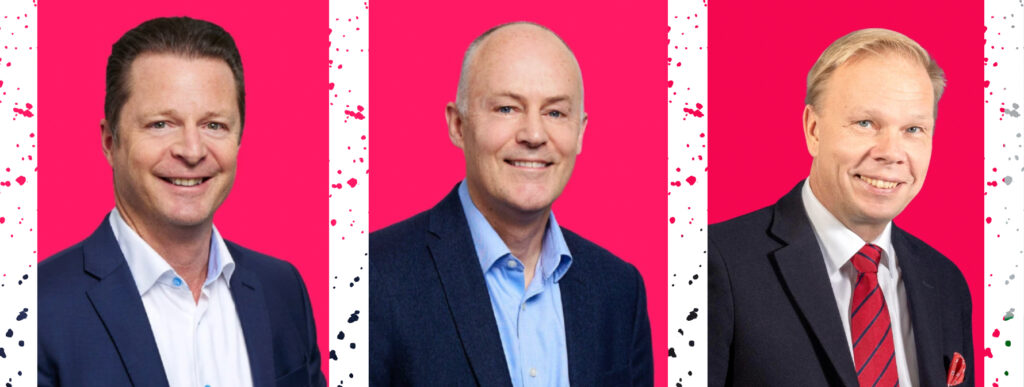Boldyn Networks has restructured its European operations following its SML acquisition, consolidating its private 4G/5G push with new leadership and a focus on industrial tech development and integration.
In sum – what to know:
Integration – the SML brand has been axed; its industrial tech and roaming expertise have been folded-in.
Reshuffle – a new executive team has been formed to drive European growth and tech innovation.
Development – the pivot sharpens Boldyn’s focus on enterprise 4G/5G networks across key sectors.
New integration, rebranding, and restructuring at Boldyn Networks possibly hints at something more, with the firm putting new focus on technological development of its private 4G/5G networks proposition. The UK-headquartered shared infrastructure provider has reformatted its European structure following the integration of German industrial system integrator Smart Mobile Labs (SML), acquired in January as the latest (and possibly the last) purchase in a hyper-active buying spree over the course of a couple of years. The SML brand has now gone, as well.
Boldyn Networks is claiming a “new strategic structure” for its European operations, with a “newly formed continental Europe business” and new leadership positions to steer its growth in the region. Andrew McGrath has been appointed as chief executive of the integrated Europe business. Andrew Conway has been appointed chief technology officer for the region, with a brief to drive the firm’s private 4G/5G “technology development”.
The sense is this covers expansion of SML’s own in-house industrial video technology, plus its private/public 5G roaming ties with European carriers, and its private 4G/5G customer/supplier contracts and deployment blueprints. The latter have been built over the course of five years, at least, in the home of Industrie 4.0 – where private 5G spectrum was liberated early (in 2021) for enterprise usage. SML has legacy private 4G/5G supply contracts with Nokia and Celona, at least.
Boldyn Networks works more broadly with private 4G/5G suppliers – including with Nokia and Mavenir, among others. The old Edzcom business, acquired from Cellnex, has historical vendor deals, notably with Nokia and Athonet (now HPE). SML, a pioneer in the Germany industrial 5G game, has major public customer references with the University of Kaiserslautern and also with Audi (via Verizon Business) in Germany, notably. The latter leverages equipment and services from Nokia and AWS.
It has deployed its own proprietary live streaming software, called Edge Video Orchestrator (EVO), at the Audi setup – which will be part of the new “technology development” initiative at Boldyn Networks. It has ties with operators in Germany to organise inter-public/private 5G roaming, and to dovetail with wider Industry 4.0 campus projects. The SML brand has now been canned, and replaced with the Boldyn livery in all business matters. The move is to establish a “unified go-to-market approach” and a “consistent, coherent brand”.

McGrath retains his role as group chief commercial officer (CCO), as well as his “Hong Kong responsibilities”. Meanwhile, Antonino Ruggiero continues as CEO of Boldyn Networks in Italy, Klaus Nagora is CEO in Germany, and Mikko Uusitalo, who joined with Boldyn Networks’ acquisition of private 5G pioneer Edzcom in March 2024, retains a horizontal-CEO brief, in charge of the firm’s private 4G/5G business in Europe. All will report into McGrath – who reports into Igor Leprince, who remains in position as group chief executive.
For its part, Boldyn Networks claims over 110 private 4G/5G network implementations in the five largest European economies, plus the US – in “transport, military, stadia and venues, energy, healthcare, and higher education sectors”. Its M&A roster also includes deals for US higher-education specialist Apogee Telecom (March 2024), plus ZenFi Networks (2022), Mobilitie (2021), Vilicom (2021), and Transit Wireless some time before. The latter quartet were acquired prior to its rebranding as Boldyn Networks in 2023, when it operated as BAI Group.
As a note, the BAI brand remains in Australia, as BAI Communications. In a wide ranging interview at MWC in Barcelona in February / March, Leprince told RCR Wireless that its M&A activity is on hold – for now. (Rumours are rife that it has bid on other businesses since.) He said at the time: “Our strategy is about shared infrastructure – beyond the tower market. Because five years ago, the [macro] tower market was largely done. But there was this segment where you can’t deploy multiple systems.”
He went on: “We are established as a global neutral-host supplier, covering the whole digital infrastructure market – except for data centres, which are separate, and towers, even though we have a few hundred in the US. But we do everything else – DAS, Wi-Fi, small cells, fiber – and we are best known for deploying [in] metro systems in London, New York, San Francisco, Rome, Hong Kong.” The firm’s highest-profile (public) deals are with TfL, plus with equivalent metro systems in the aforementioned cities. It also has a new deal with Deutsche Bahn.
Some deals blur in the smart-city space, and some into sporting and industrial venues. The Crypto.com Arena in Los Angeles (formerly the Staples Center) is on its books, for example, alongside the next-door LA Convention Center. Its work in the City of Sunderland in the UK covers a public broadband network, plus comms for the Nissan factory and football stadium. But the restructure in Europe is mostly about private networks for private venues, and stems from the SML deal, and its Edzcom purchase before.
Leprince talked in February / March about how the business case is different for private 4G/5G networks. “The driver is a little different. A stadium is a kind of crossover example for different neutral-host interests, but then you get into Industry 4.0 [where the requirement is mission or business-critical, which often makes the business case] – and where there could be an opportunity for both private network and neutral host [systems].”
He explained: “It is still a relatively small part, and it is difficult to define, but it is also not an insignificant part – and, more importantly, it is something we believe will grow. That’s why we bought [Vilicom, Edzcom, SML]; we had enough expertise to build private networks, but we need the enterprise references – to speak the language of wind farms and ports, and whichever verticals. The growth is exciting, and very real. A couple of years ago, these were all pilots. There is no such thing today; they are large scale deployments – at 20 or 25 ports, for example.”
McGrath said this week of the new restructure: “We are shaping an extraordinary business. Europe is a core part of our growth story, and this new organisational structure makes the best use of our skills, experience and knowledge of local markets to consistently deliver the best outcomes for our customers. Boldyn continues to be a dynamic force driving global economies towards a truly interconnected future.”
Boldyn Networks registers as a ‘major player’ in a new IDC review of the private 5G vendor market.

